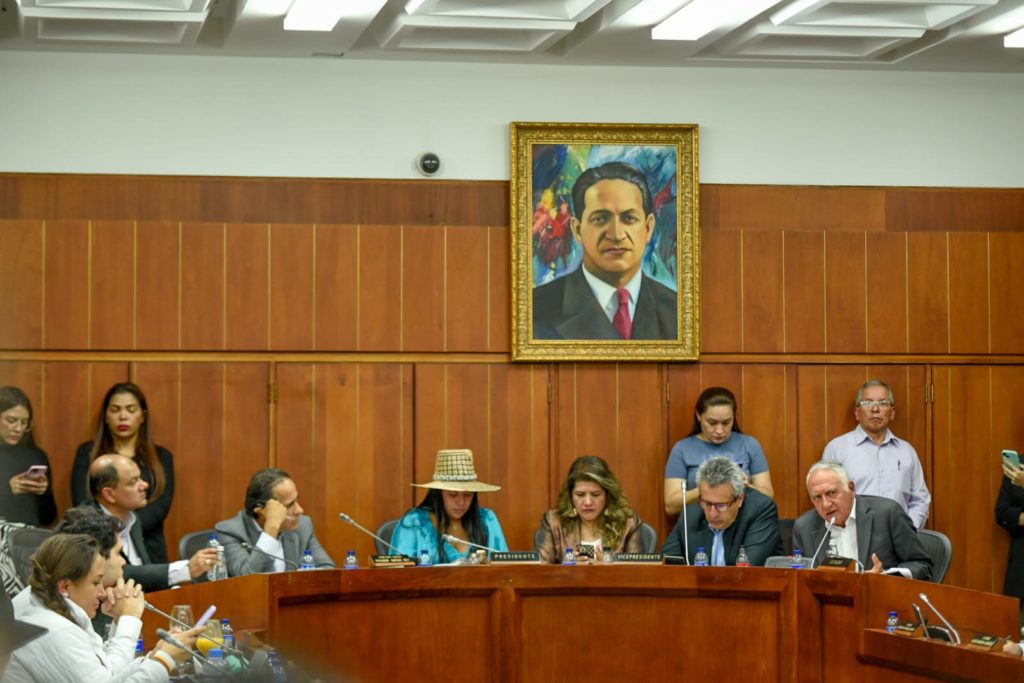
The government’s attempt to reform healthcare in Colombia hit a roadblock as the political opposition successfully stopped the proposal. After intense debates that lasted several days, the parliamentary committee tasked with reviewing the initiative decided to definitively shelve the bill, which had been under consideration in Congress for months.
As the government intervened in Colombia’s two leading private health companies, Nueva EPS and Sanitas, efforts to reshape the country’s healthcare sector through new legislation fell short. Although there was consensus on the necessity of reforms, Colombian political factions couldn’t align on a new framework. The ruling party advocated for a system dominated by public administration, while the conservative opposition insisted on preserving the significant presence of private firms within the healthcare system.
The filing of the law was a hard blow for the government of President Gustavo Petro since, together with other social reforms, the Health Law was one of the most relevant projects of his administration, which was close to the halfway point of his term of office.
“The defeat of humble people”
In declarations to W Radio, Congresswoman Martha Alfonso, from the governmental Pacto Historico, said that “this is not a setback or a blow for the Government but for the most humble people in Colombia, who in the most remote regions are unable to access health services despite being affiliated to an EPS (private health company). The health system in Colombia requires a reform, it is necessary to make formal and structural adjustments”.
Alfonso defended that “within the framework of the law, of the Constitution, it is up to the Government to move forward to mitigate this crisis that has been going on for a long time, and it is up to the Government to come out with all the resources since it was not possible through democratic means in the debate in Congress.”.
For her part, the senator of the opposition Democratic Center, Paloma Valencia, warned that “generating health systems is not simply saying that one is going to be a good system, no, it is designing them, it is generating the incentives, it is the complexity of building a system, which was lacking in their bill…… There were a couple of wrong decisions, among others, to hand over the control of health to the country’s politics.”. Valencia was referring here to the more state-based conception in the proposal that has now been shelved, which sought public management of the service.
The EPS controversy
Private health insurance companies, called EPSs, play a central role in Colombia’s current healthcare model, which has been in place for three decades. They are the recipients of money from the state, the main financier of the system, and are in charge of paying hospitals and primary care centers, which provide the actual patient care.
The role of these EPSs has been controversial from the beginning. A hundred of these companies have ended up being intervened in by the State and liquidated, many of them after multi-million embezzlement and irregular management were revealed during the thirty years of their existence. During the four-year presidency of the conservative Ivan Duque (2018-2022) alone, a total of thirteen of these companies disappeared, after State intervention. That is why the government sought to eliminate the central role of these companies in the management of important public resources.
“The possibility of putting an end to the corruption of the EPSs has been ruined. The possibility of bringing quality health to millions of compatriots who today do not have health services is sinking”, wrote in his social networks the former senator of the governing party Historical Pact, Gustavo Bolivar, currently director of the Department of Social Prosperity.
From a diametrically opposite viewpoint, the right-wing senator, Paloma Valencia, wrote that “they have just voted to file the health reform bill; the disastrous reform was sunk…with 9 votes in favor. The right to health triumphs”. The representative of the opposition party Democratic Center, added that “now comes the outrage of the government that pretends to ignore the democratic decision”, in clear reference to the decision on the intervention of Nueva EPS by the State, the same day that the legislative reform failed in Congress.
Uncertain future
As of today, it is not known what is going to happen with the health system in Colombia. After the failure of the government’s new law and the public intervention of the two most important private companies in the sector, the opposition launched the message that the State is going to continue with the interventions, as a “retaliation” for its legislative failure.
For its part, the government speaks of the need to change the model, but the lack of political consensus and the impossibility of gathering the necessary support to pass a law along the lines proposed by the Ministry of Health is becoming evident.
Despite repeated calls from the Minister of Health and the Presidency for calm, the country is living with anxiety about a situation that affects one of the most sensitive sectors of society: health care. President Gustavo Petro has guaranteed that health care for the millions of people who are affiliated with the two intervening companies will continue with total normality, but misgivings are growing.
In this context, the need to reach a consensus on a new legislative proposal, with more support, becomes evident, something difficult at a time of enormous political polarization between government and opposition.

See all the latest news from Colombia and the world at ColombiaOne.com. Contact our newsroom to report an update or send your story, photos and videos. Follow Colombia One on Google News, Facebook, Instagram, and subscribe here to our newsletter.

